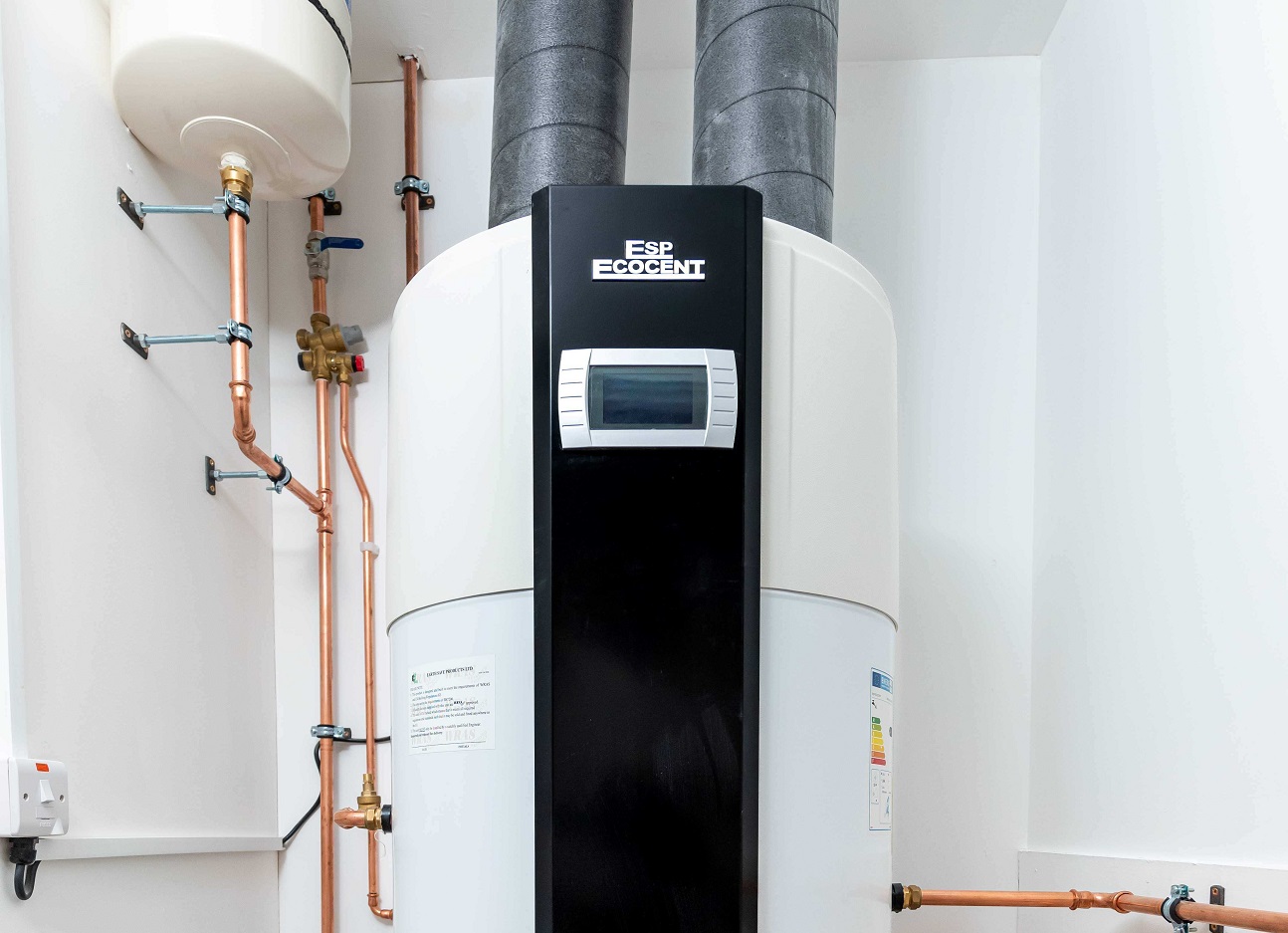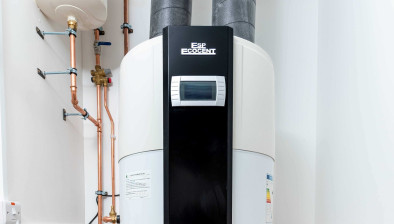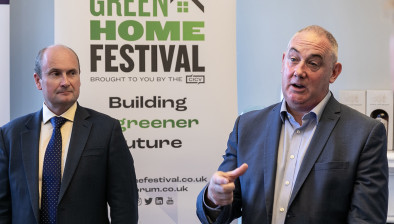Expert report maps opportunities and barriers to financing heat transition

An air source heat pump
There is substantial growth potential for financing climate-friendly heating and energy efficiency improvements in Scotland’s homes, according to a new report published today.
Focused on helping individual property owners to access the best solutions for their circumstances, the Green Heat Finance Taskforce makes nine recommendations to boost the range of private finance options in its first report.
The report also reviews barriers to private funding to support climate-friendly heating systems, like air source heat pumps, and identifies opportunities to develop new finance products such as green mortgages and equity release mechanisms at scale.
The report concludes that while the market for financing green heating and insulation measures is currently immature, it is expanding – with green mortgages increasing from four to over 60 products in the past four years - and that there is substantial future growth potential as the demand for clean heating systems increases.
The report calls on the Scottish Government to co-ordinate the development of a ‘menu’ of private financing products to help consumers choose how to finance the up-front costs of installing clean heating systems.
Sara Thiam, Taskforce co-chair, and chief executive, Prosper (formerly the Scottish Council for Development and Industry, SCDI) said: “A strong economy cannot be separated from social and environmental wellbeing and this report adds to the growing body of evidence about size of the prize – not just for our economy and the planet, but for people’s health and wellbeing - if government and industry work together to find innovative ways to fund and finance the transformation of our homes to make them fit for the future.
“Getting the incentives right for owners to invest in transforming their homes is just one part of the puzzle, but focussing in on this has helped us understand the scale of the transformation required across sectors and industries and the innovative approaches that are being taken.
“Scotland has unique advantages in both financial services and the renewables industry and leveraging these to capture the economic value of the transition to Net Zero is critical to Scotland’s ability to thrive in a global economy.”
Patrick Harvie, zero carbon buildings minister and Taskforce co-chair said: “I am very grateful for the considerable effort, expertise and insight provided by the Taskforce. The report sets out very clearly the steps we need to take - not only as a government but by collaborating with industry and wider society - to improve access to finance and to give people and businesses the confidence and assurance they need to act and make their properties greener and warmer.
“The products identified by the Taskforce in this first report are primarily suitable for people who can afford the repayment costs over time. Of course, we know some people may not be able to afford such repayment costs and I therefore anticipate a mix of public and private financing in various combinations will be required as we transition to clean heat at scale.
“I am hugely encouraged that the report recognises the substantial growth potential for green finance products. The report also makes clear that greener homes can play a major role in improving health by making properties warm and dry. We will respond to the recommendations following publication of the Taskforce’s second report next year.”
Acknowledging that no single solution will suit everyone and that successfully converting to clean heat at scale will require contributions from various organisations, the report’s recommendations encourage:
- The Scottish Government, from early 2024, should work with the Green Finance Institute, Scottish Financial Enterprise and others to expand current market engagement with brokers, finance providers, distributors and quantity surveyors to generate greater public awareness of financing products like green mortgages and encourage their expansion;
- The Scottish Government should begin work, from early 2024, in partnership with the Equity Release Council, to develop an information framework and guidance for Green Retrofit Equity Release products;
- The Scottish Government should research co-investment vehicles – blended finance with public and private input – with the support of the Scottish National Investment Bank, Scottish Financial Enterprise and Scottish Futures Trust, to identify by the end of 2024 where and how to test the approach in Scotland;
- The Scottish Government should collaborate with the Green Finance Institute to research the potential for Property Linked Financing in Scotland, with a view to establishing a scalable demonstrator by May 2025;
- The Scottish Government should review and publish, by the end of 2024, the potential of incentivising domestic property owners to increase levels of retrofit works through fiscal and taxation policy;
- The Scottish Government should review and publish, by the end of 2024, analysis of how non-domestic rates reliefs can better support and encourage investment in energy efficiency and ZDEH;
- The Scottish Government should seek to mitigate the split incentive issue by researching and piloting, by early 2025, the potential for green rental agreements, to encourage retrofitting in rented properties;
- The Scottish Government should immediately engage the UK Government and regulators to drive action on ZDEH and energy efficiency deployment, and support coordination of activities between parties; and
- The Scottish Government should, by mid-2024, map current heat in building data gaps and establish a framework to promote open data sharing to address these.
As an original member of the Taskforce, the UK Green Building Council (UKGBC) Scotland said the report’s recommendations have the potential to galvanise broad support and drive accelerated action across the built environment industry, local authorities, and the Scottish Government.
Simon McWhirter, UKGBC deputy chief executive said: “By providing a clear and comprehensive call-to-action, this report can drive much-needed momentum towards making the green transition affordable and accessible across Scotland.
“So far, the accelerating climate emergency has outpaced our efforts to seed a mature green finance market – this report is a vital step in turning that tide in Scotland.
“We’re particularly encouraged that the Taskforce will explore blended private and public investment models and fiscal incentives for domestic and non-domestic property, which are brilliant opportunities to remove up-front costs to households and unlock the mass-market to deliver solutions at speed and scale. Upcoming consultations on the Heat in Buildings Bill should continue these conversations and ensure that meaningful engagement with citizens and industry are at the heart of the Scottish Government’s decarbonisation strategy.
“Together with our Taskforce colleagues, we will continue to urge the Scottish Government to utilise these recommendations to design and deliver ambitious policy commitments.”





















